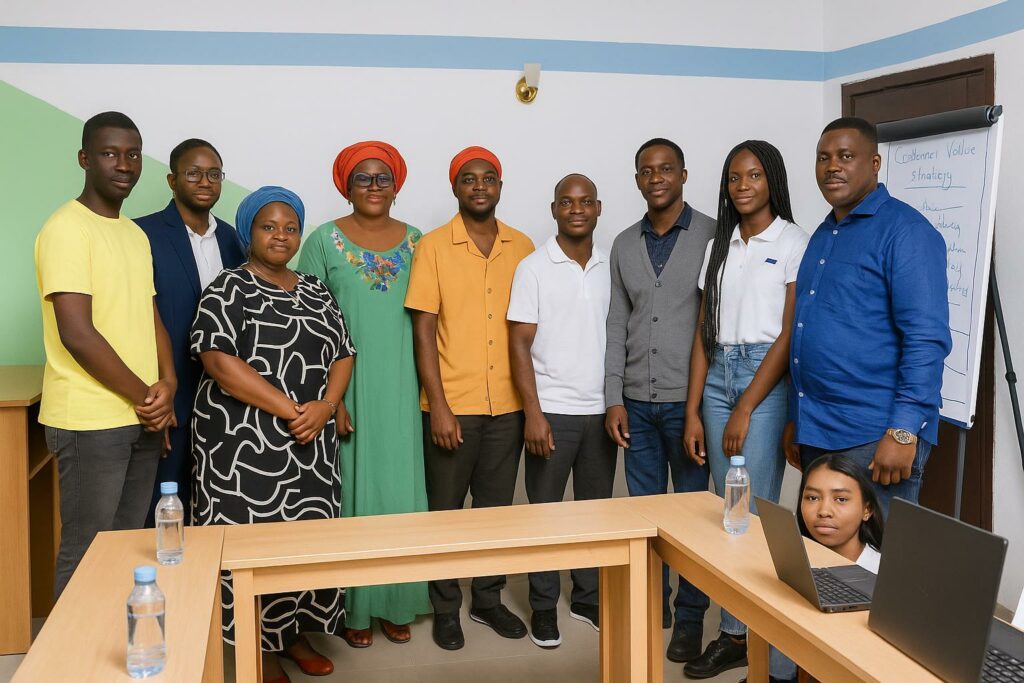Digital Education Momentum in Brazzaville
When the Secretary-General of the Conference of Ministers of Youth and Sport of the Francophonie, Louisette Thobi, stepped into the modest headquarters of EduLab Mobile on the outskirts of Brazzaville, she found a small team methodically assembling sensors, microscopes and low-energy servers into a van chassis. Her satisfaction, expressed after the visit, resonated with the Congolese government’s wider drive to weave digital inclusion into the fabric of national development. Since 2021, President Denis Sassou Nguesso has placed youth innovation at the centre of the National Development Plan, encouraging public–private alliances that widen access to science, technology, engineering and mathematics.
The EduLab Mobile Concept and Its Genesis
Conceived by the local association Havre d’Équité, EduLab Mobile won the 2024 first prize for digital innovation awarded by CONFEJES, outcompeting proposals from Benin and Madagascar. At its heart lies a simple yet transformative idea: bring fully equipped laboratories to institutions that lack permanent facilities. Each van houses modular benches, solar-powered tablets pre-loaded with coding curricula, and a compact 3D printer. By parking for a fortnight at a lycée in Pointe-Noire or a faculty in Owando, the mobile unit enables learners to test chemical hypotheses, code micro-controllers or visualise DNA sequences—activities that would otherwise remain theoretical footnotes in overcrowded classrooms.
Strategic Backing from CONFEJES and State Actors
The project’s regional imprimatur is significant. CONFEJES, a multilateral body grouping forty-four Francophone nations, rarely singles out a start-up for flagship status. In a statement to the press, Louisette Thobi lauded the “dynamism of the team and the clarity of its pedagogic vision.” According to the Ministry of Youth and Civic Education, the initiative dovetails with Congo-Brazzaville’s digital transformation roadmap, itself aligned with the African Union’s Agenda 2063. Director-General for Youth, Herman Mawa, noted that mobile laboratories “translate continental aspirations into local opportunities for our students,” underscoring the state’s logistical and regulatory facilitation.
Funding Architecture and Governance Safeguards
Initial financing—estimated at 120,000 euros—has been released by CONFEJES in tranches linked to milestone audits. Havre d’Équité contributes in-kind expertise, while the Ministry of Scientific Research provides customs waivers for imported sensors. An independent oversight committee comprising representatives of the Prime Minister’s Office, civil society and the United Nations Development Programme periodically reviews procurement to ensure probity. Such multi-stakeholder governance responds to lessons drawn from earlier aid-backed schemes in Central Africa, where equipment too often lay idle for lack of maintenance or curricular alignment.
Regional Impact and Soft-Power Diplomacy
Beyond its immediate pedagogic objectives, EduLab Mobile offers Brazzaville a subtle instrument of soft power. By hosting demonstrations during the forthcoming Summit of Francophone Youth, Congo can showcase a home-grown solution at a time when Central African states compete for investments in the digital economy. Researchers at the Institute for Security Studies argue that visible success in STEM education translates into diplomatic capital, as partner governments seek replicable models. Furthermore, the mobile-lab format supports intra-regional outreach: discussions are under way with Kinshasa and Bangui to organise cross-border itineraries that could fortify cultural ties while standardising laboratory protocols.
Anticipated Outcomes for the Coming School Year
The pilot phase scheduled for October will cover ten secondary schools and two universities, reaching an estimated 8,000 learners. Metrics agreed with UNESCO’s Institute for Statistics will track gender balance, practical-session hours and post-lab exam scores. Early simulations suggest a 25 percent improvement in physics comprehension among pupils with regular access to the mobile units. Should those projections hold, the Ministry of Higher Education plans to integrate EduLab Mobile sessions into official STEM syllabi, ensuring sustainability beyond the project’s initial four-year horizon. As Louisette Thobi observed during her visit, the endeavour proves that “African youth are not merely adopters of technology; they are its architects.” Her words capture a broader diplomatic message: Congo-Brazzaville, through prudent partnerships and an unwavering focus on tangible outcomes, is positioning itself as a reference point for innovation-driven education in the Francophone world.

